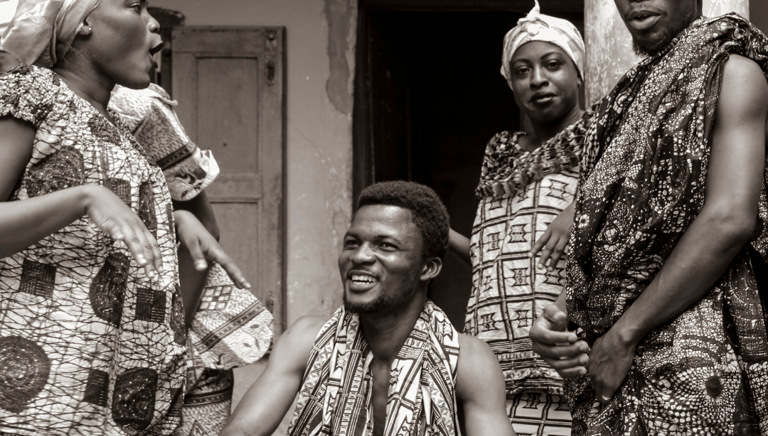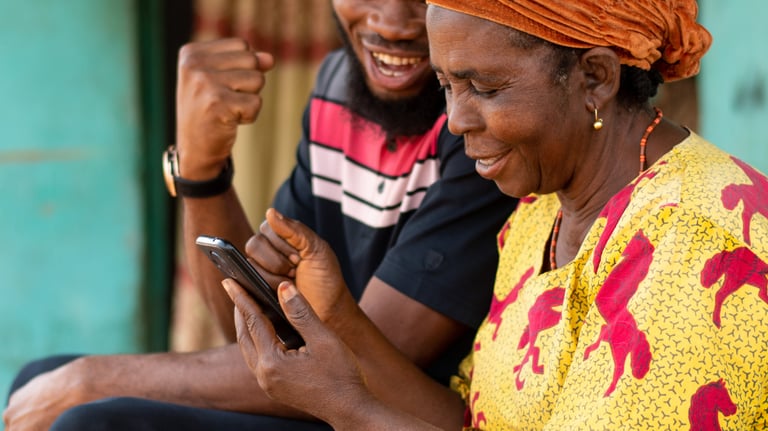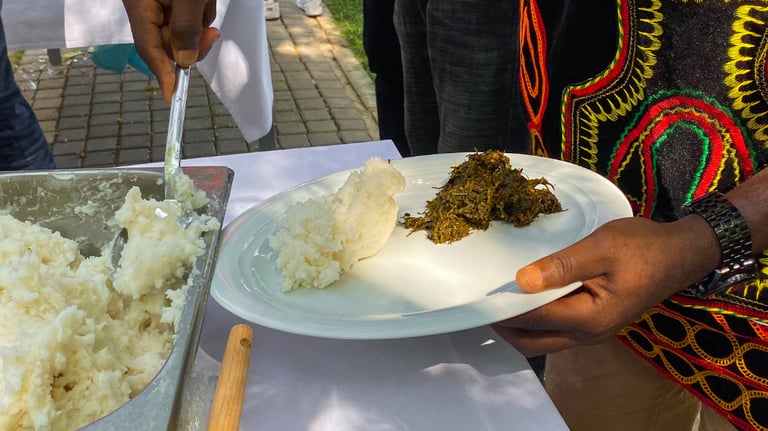A Warm Welcome to Ghana: Traditions, Customs, and Etiquette for Visitors
Ghana, known for its rich culture, vibrant traditions, and welcoming spirit, offers visitors an experience like no other. Whether you're here for business, leisure, or exploring your roots, understanding and respecting local customs will enhance your stay and help you connect more deeply with the people. Here's a guide to the essential traditions, customs, and etiquette you should know as a visitor to Ghana.
Alfred Rogol
8/3/20244 min read


Dressing appropriately in Ghana is about more than just adhering to the climate—it’s a way of showing respect for the local culture and traditions. By understanding the importance of modesty and the significance of traditional attire, you’ll not only feel more comfortable but also enhance your interactions with the local community. Whether you're attending a formal event, visiting a religious site, or just exploring the vibrant streets, dressing with consideration will help you blend in and make the most of your experience in this beautiful country.






Greetings: A Sign of Respect and Friendship
In Ghana, greetings are a crucial part of social interaction, reflecting the value placed on community and respect. When you meet someone, especially for the first time, it’s important to greet them properly.
Handshakes: A typical greeting involves a handshake. Ghanaians often add a snap at the end of the handshake by snapping their fingers against yours. This is a friendly gesture and shows familiarity.
"Akwaaba" (Welcome): When you arrive, you’ll often hear this word. Respond with a smile and a nod.
"Medaase" (Thank you): Express your gratitude with this phrase. It’s a simple yet powerful way to show appreciation.
Greetings in Local Languages: While English is widely spoken, learning a few phrases in the local language can go a long way. In the Akan-speaking regions, you might say "Eti sen?" (How are you?) and respond with "Me ho ye" (I’m fine). In Ga-speaking areas, "Ojekoo" (Good morning) is a common greeting.
Understanding Social Customs
Ghanaian society values respect, humility, and a sense of community. Here are some customs and etiquette tips to keep in mind:
Respect for Elders: Always greet the eldest person first in any group. When addressing them, use respectful titles like "Papa" for men and "Mama" for women.
Gift Giving: If you’re visiting someone’s home, bringing a small gift like fruit or sweets is appreciated. However, avoid offering gifts with the left hand, as the left hand is traditionally considered unclean.
Hand Gestures: Use your right hand when giving or receiving something, eating, or pointing. The left hand is generally reserved for personal hygiene.
Politeness: Ghanaians value politeness. It's common to exchange pleasantries before getting into the main topic of conversation. Rushing into business without a proper greeting can be seen as rude.
Cultural Practices and Traditions
Ghana is home to a diverse range of ethnic groups, each with its unique traditions. However, some customs are widely practiced and important to understand:
Funerals: Funerals are significant social events in Ghana, often elaborate and attended by large groups. If invited, it’s respectful to attend, but dress appropriately in black or red, which are traditional mourning colors.
Naming Ceremonies: The naming ceremony, known as "Outdooring," is a vital rite of passage where a newborn is introduced to the community. If you’re invited, participating respectfully can be a meaningful experience.
Traditional Festivals: Ghana has numerous traditional festivals that celebrate history, harvest, and culture. If you attend one, be ready to enjoy vibrant music, dance, and food. It’s also a chance to dress in traditional Ghanaian attire like the Kente cloth, if you wish to fully immerse yourself.
Do's and Don'ts: Navigating Social Etiquette
Do dress modestly: Ghanaians generally dress conservatively. When visiting rural areas or religious sites, ensure your clothing covers your shoulders and knees.
Do dress conservatively: Cover your shoulders and knees, especially in rural areas and during formal or religious events.
Do wear traditional clothing if possible: It’s a sign of respect and appreciation for the local culture, especially during festivals and ceremonies.
Don’t wear revealing clothing: Avoid short skirts, shorts, and low-cut tops in public settings, as these can be seen as disrespectful.
Do remove hats or caps indoors: It’s considered polite to remove headgear when entering someone’s home or a place of worship.
Don’t forget sun protection: A hat and sunscreen are advisable given Ghana’s hot climate, especially when spending time outdoors
Do remove your hat or cap indoors: It’s considered respectful to remove your hat when entering someone’s home or a place of worship.
Don’t take photographs without permission: Always ask before taking pictures of people, especially in rural areas or during ceremonies.
Do be patient: Time is more flexible in Ghana. Meetings and events may not start punctually, so being patient and understanding is key.
Don’t point at people with your fingers: Instead, use your right hand with all fingers extended if you need to gesture towards someone.
Embrace the Experience
Visiting Ghana is more than just a trip; it’s an opportunity to immerse yourself in a culture rich with history, tradition, and warmth. By understanding and respecting local customs, you’ll find that Ghanaians are eager to share their world with you, making your stay even more memorable.
So, take the time to greet people warmly, learn a few local phrases, and approach every interaction with respect and an open heart. You’ll not only enjoy your time in Ghana but also leave with lasting connections and a deeper appreciation for this beautiful country.